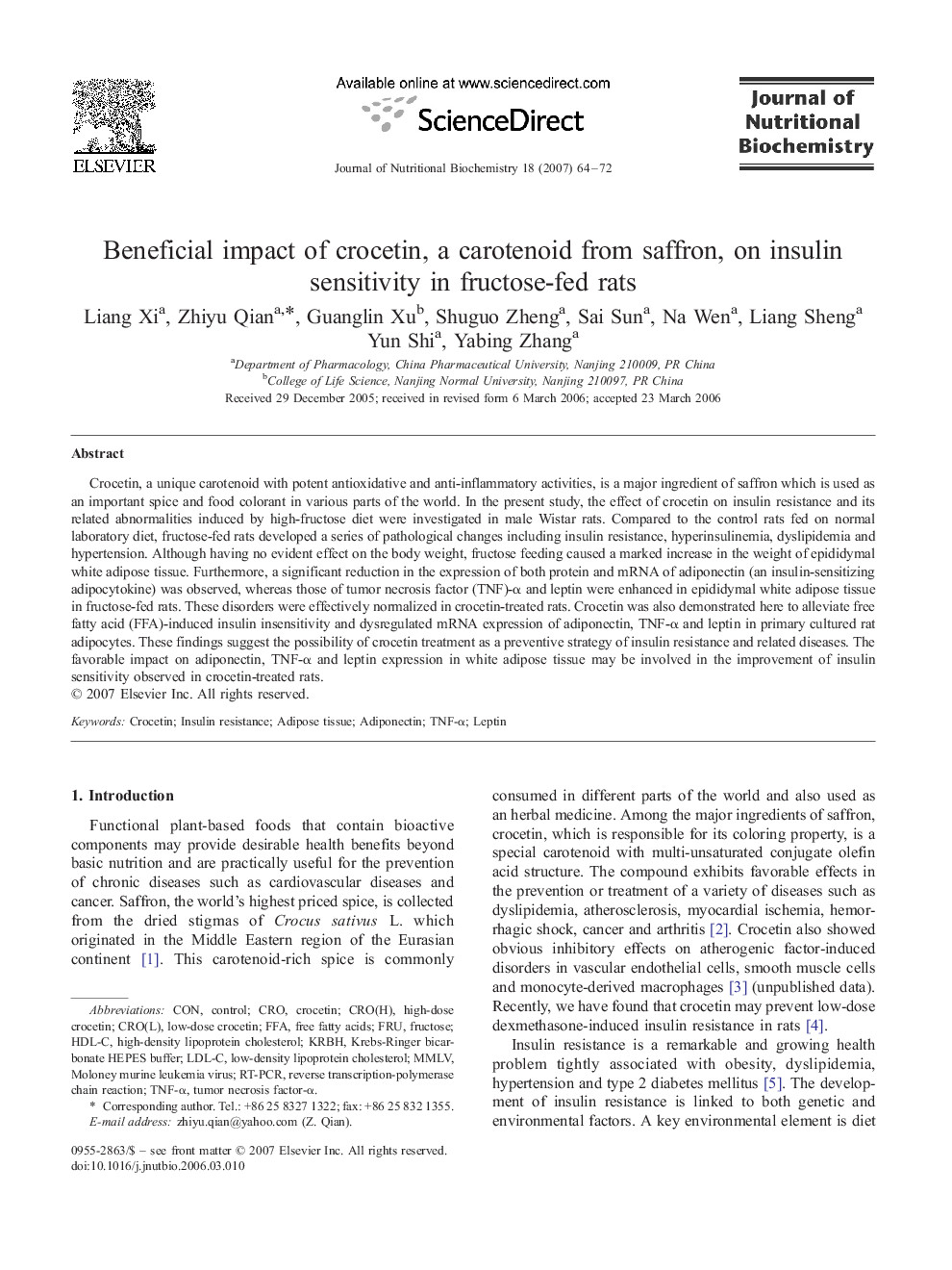| Article ID | Journal | Published Year | Pages | File Type |
|---|---|---|---|---|
| 1991101 | The Journal of Nutritional Biochemistry | 2007 | 9 Pages |
Abstract
Crocetin, a unique carotenoid with potent antioxidative and anti-inflammatory activities, is a major ingredient of saffron which is used as an important spice and food colorant in various parts of the world. In the present study, the effect of crocetin on insulin resistance and its related abnormalities induced by high-fructose diet were investigated in male Wistar rats. Compared to the control rats fed on normal laboratory diet, fructose-fed rats developed a series of pathological changes including insulin resistance, hyperinsulinemia, dyslipidemia and hypertension. Although having no evident effect on the body weight, fructose feeding caused a marked increase in the weight of epididymal white adipose tissue. Furthermore, a significant reduction in the expression of both protein and mRNA of adiponectin (an insulin-sensitizing adipocytokine) was observed, whereas those of tumor necrosis factor (TNF)-α and leptin were enhanced in epididymal white adipose tissue in fructose-fed rats. These disorders were effectively normalized in crocetin-treated rats. Crocetin was also demonstrated here to alleviate free fatty acid (FFA)-induced insulin insensitivity and dysregulated mRNA expression of adiponectin, TNF-α and leptin in primary cultured rat adipocytes. These findings suggest the possibility of crocetin treatment as a preventive strategy of insulin resistance and related diseases. The favorable impact on adiponectin, TNF-α and leptin expression in white adipose tissue may be involved in the improvement of insulin sensitivity observed in crocetin-treated rats.
Related Topics
Life Sciences
Biochemistry, Genetics and Molecular Biology
Biochemistry
Authors
Liang Xi, Zhiyu Qian, Guanglin Xu, Shuguo Zheng, Sai Sun, Na Wen, Liang Sheng, Yun Shi, Yabing Zhang,
